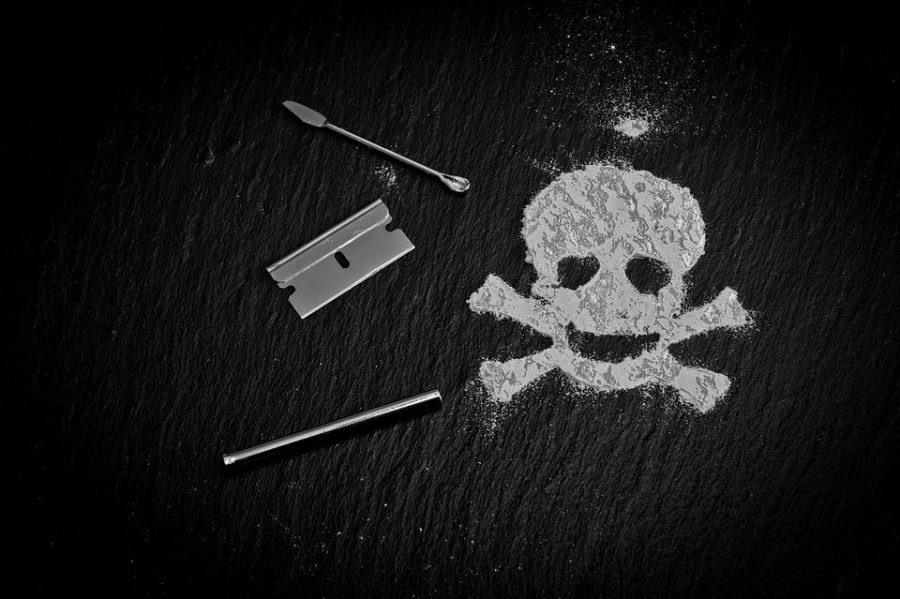Many people are highly supportive of legalizing marijuana. It is a topic highly stressed on college campuses, and if all teachers and professors aren’t for the legalization by now, it shouldn’t take much more convincing to push them in the right direction. We can all make a joint decision that it should be legalized everywhere since it is harmless and reaps medical benefits. But what if we took the legalizing and decriminalizing up one more notch — and decriminalize all drugs?
To be blunt, the decriminalization of all drugs would reduce overdose-related deaths. If all drugs were decriminalized, regulations would be more substantial, ensuring that the substances wouldn’t be mixed with all sorts of other harmful chemicals. The synthetic drugs are cheaper and more available than the pure drugs are, and account for the majority of drug-related deaths.
Let’s focus in on a famous example. All drugs were decriminalized in Portugal in 2001, and the results were astounding. In fact, they’ve found that drugs rarely ever kill anyone in Portugal now. Portugal is the second place leader in the world with the lowest drug deaths. According to Chris Ingraham, Washington Post journalist, “Among Portuguese adults, there are 3 drug overdose deaths for every 1,000,000 citizens. Comparable numbers in other countries range from 10.2 per million in the Netherlands to 44.6 per million in the UK, all the way up to 126.8 per million in Estonia. The EU average is 17.3 per million.”
In Portugal, drug abuse is treated as a medical issue rather than a crime, which is a much more effective way of keeping it under control while encouraging those struggling to seek help. When people seek help, crime rates drop — crimes of all sorts, not just possession, consumption, etc. of drugs. Instead of locking people away in prison for drug involvement, the nation medically and psychologically treats them, which studies have shown is significantly cheaper than incarcerating abusers. This puts a new perspective on drugs and completely warps the connotation of them, which seems to have an effect on the public.
Lauren Frayer, writer for NPR said that, “Every day, a government van pulls up and gives him [Rui, a Portuguese man] a dose of methadone, an opioid that helps wean people off of heroin. It’s a step toward harm-reduction. He still does cocaine, but no longer shoots up. Drug-related HIV infections in Portugal have dropped 95 percent.” This is what it looks like in the countries that have decriminalized drugs. They assess addicts individually as if they have a medical condition or mental illness, and it seems to be the best way to handle major drug issues. The U.S. needs to face similar problems the way Portugal has if it wants to decrease incarceration rates, the spread of major diseases, as well as reduce overall crime rates around the country.



Addison Shuppy • Sep 4, 2017 at 11:14 am
The problem with legalizing these drugs is that laws represent a certain country’s goals for morality. And since recreational use of illegal drugs are extremely damaging to one’s body, they are, quite plainly, immoral. Legalizing them encourages their use, and government programs to ensure people do not suffer the consequences of their actions are not ethical to tax payers in the slightest. The best way to keep the human race physically strong and independent of chemicals is to accept, encourage, and teach morality.
Furthermore, the scheme of legalizing illegal drugs in order to control their flow places more control into the governments hands, and those who are dependent on these drugs are now dependent on the government as well. That seems very manipulative and socialistic. And as Margaret Thatcher says, “The trouble with Socialism is that eventually you run out of other people’s money.” Therefore, the best way to help those currently addicted to drugs is to help them see that what they are doing is harmful, and use their control over their own lives to become more empowered after they overcome their addiction than before. It is interesting how protecting the law protects the freedom of the individual in this case.
Joy Lombardi • Aug 29, 2017 at 2:17 pm
Brook, great points but remember that Portugal has a National Health Service like the UK and other European countries and so they are able to treat drug abuse like a medical condition. This wouldn’t work here in our current system where so many people have no health insurance or coverage for other than catastrophic events.